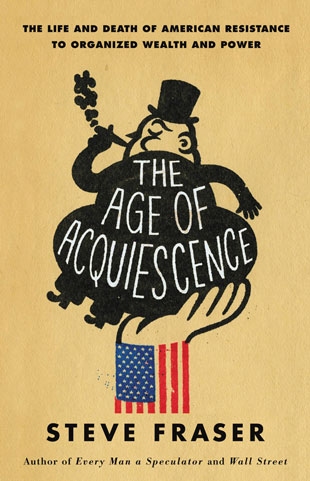"We think of the last third of the nineteenth century as a time of great accomplishment, especially of stunning economic growth and technological transformation and the amassing of stupendous wealth. This is the age of the steam engine and transcontinental railroads, of the mechanical reaper and the telephone, of cities of more than a million and steel mills larger than any on earth, of America's full immersion in the Industrial Revolution. A once underdeveloped, infant nation became a power to be reckoned with.
"For people living back then, however much they were aware of and took pride in these marvels, the Gilded Age was also a time of profound social unease and chronic confrontations. Citizens were worried about how the nation seemed to be verging on cataclysmic divisions of wealth and power. The trauma of the Civil War, so recently concluded, was fresh in everyone's mind. The abiding fear, spoken aloud again and again, was that a second civil war loomed. Bloody encounters on railroads, in coal mines and steel mills, in city streets and out on the Great Plains made this premonition palpable. This time the war to the death would be between the haves and have-nots, a war of class against class. American society was becoming dangerously, ominously unequal, fracturing into what many at the time called 'two nations.'
"Until OWS [Occupy Wall Street] came along, all of this would have seemed utterly strange to those living through America's second Gilded Age. But why? After all, years before the financial meltdown plenty of observers had noted how unequal American society had become. They compared the skewed distribution of income and wealth at the turn of the twenty-first century with the original Gilded Age and found it as stark or even starker than at any time in American history. Stories about penthouse helipads, McMansions roomy enough to house a regiment, and private island getaways kept whole magazines and TV shows buzzing. 'Crony capitalism,' which Twain had great fun skewering in his novel, was very much still alive and well in the age of Jack Abramoff. Substitute those Fifth Avenue castles, Newport beachfront behemoths, and Boss Tweed's infamous courthouse of a century before and nothing much had changed.
"Or so it might seem. But in fact times had changed profoundly. Gone missing were the insurrections and all those utopian longings for a world put together differently so as to escape the ravages of industrial capitalism. It was this social chemistry of apocalyptic doom mixed with visionary expectation that had lent the first Gilded Age its distinctive frisson. The absence of all that during the second Gilded Age, despite the obvious similarities it shares with the original, is a reminder that the past is indeed, at least in some respects, a foreign country. Why, until the sudden eruption of OWS — a flare-up that died down rather quickly — was the second Gilded Age one of acquiescence rather than resistance?
"If the first Gilded Age was full of sound and fury, the second seemed to take place in a padded cell. Might that striking contrast originate in the fact that the capitalist society of the Gay Nineties was nothing like the capitalism of our own time? Or to put it another way: Did the utter strangeness of capitalism when it was first taking shape in America — beginning decades before the Gay Nineties — so deeply disturb traditional ways of life that for several generations it seemed intolerable to many of those violently uprooted by its onrush? Did that shattering experience elicit responses, radical yet proportionate to the life-or-death threat to earlier, cherished ways of life and customary beliefs?
"And on the contrary, did a society like our own long ago grow accustomed to all the fundamentals of capitalism, not merely as a way of conducting economic affairs, but as a way of being in the world? Did we come to treat those fundamentals as part of the natural order of things, beyond real challenge, like the weather? What were the mechanisms at work in our own distinctive political economy, in the quotidian experiences of work and family life, in the interior of our imaginations, that produced a sensibility of irony and even cynical disengagement rather than a morally charged universe of utopian yearnings and dystopian forebodings?
"Gilded ages are, by definition, hiding something; what sparkles like gold is not. But what they're hiding may differ, fundamentally. Industrial capitalism constituted the understructure of the first Gilded Age. The second rested on finance capitalism. Late-nineteenth-century American capitalism gave birth to the 'trust' and other forms of corporate consolidation at the expense of smaller businesses. Late-twentieth-century capitalism, notwithstanding its mania for mergers and acquisitions, is known for its 'flexibility,' meaning its penchant for off-loading corporate functions to a world of freelancers, contractors, subcontractors, and numberless petty enterprises. The first Gilded Age, despite its glaring inequities, was accompanied by a gradual rise in the standard of living; the second by a gradual erosion."
